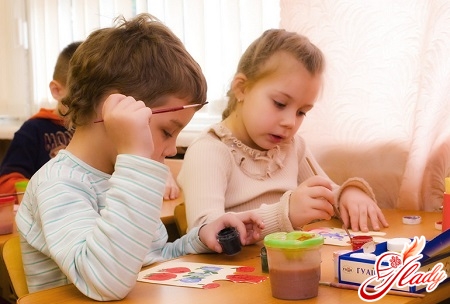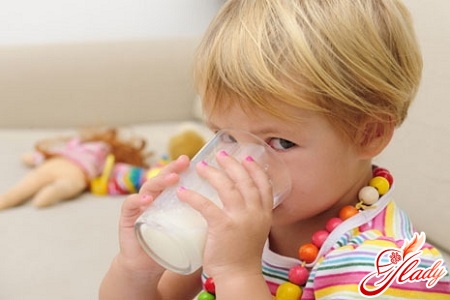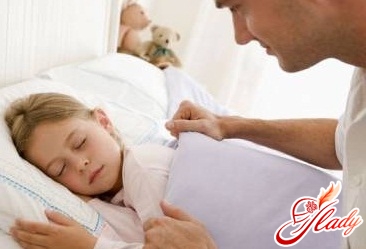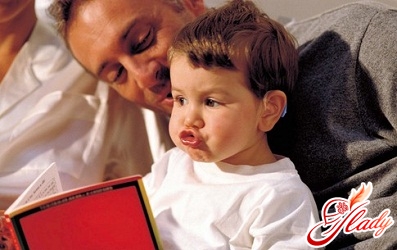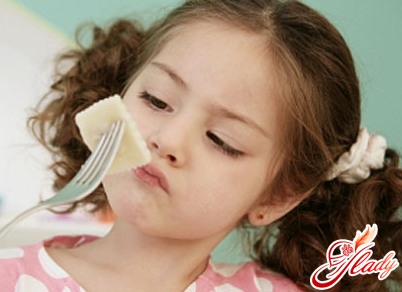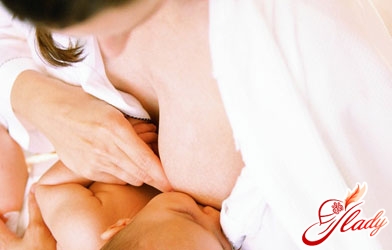 Anyone has probably encountered an intestinal infectionperson. Of course, the sensations are not pleasant, but not fatal, right? But for children, intestinal infections, the symptoms of which are expressed much more severely, pose a serious threat to health. And sometimes, unfortunately, to the life of the child. Sad medical statistics say that 30% of all child deaths under the age of three are due to intestinal infections. Why does this happen? After all, the level of modern medicine is quite high, but children still die. Most often, this is a consequence of the fact that parents sounded the alarm too late. Therefore, in order to avoid such a terrible outcome, which can lead to intestinal infections in children, all parents without exception should know the symptoms of this disease.
Anyone has probably encountered an intestinal infectionperson. Of course, the sensations are not pleasant, but not fatal, right? But for children, intestinal infections, the symptoms of which are expressed much more severely, pose a serious threat to health. And sometimes, unfortunately, to the life of the child. Sad medical statistics say that 30% of all child deaths under the age of three are due to intestinal infections. Why does this happen? After all, the level of modern medicine is quite high, but children still die. Most often, this is a consequence of the fact that parents sounded the alarm too late. Therefore, in order to avoid such a terrible outcome, which can lead to intestinal infections in children, all parents without exception should know the symptoms of this disease.
Pathogens of intestinal infection
There are quite a lot of differentpathogenic microflora - viruses and bacteria - that become the causative agents of intestinal infections. All these pathogens are very hardy and viable - they survive in the external environment for a very long time. They can often be found on toys, clothes, dishes, dirty vegetables and fruits. Simply put, it is quite difficult to predict where trouble will come from. By the way, this is why doctors and experienced parents so ardently advocate for cleanliness. Moreover, there are a number of pathogens that live and multiply perfectly in some foods even at extremely low temperatures. Doctors distinguish several main types of intestinal infections, depending on what pathogens caused the disease:
- Dysentery (pathogen - shigella). It occurs today in children most often
- Colienteritis (pathogen - enteroinvasive E. coli). The second most common intestinal infection among children
- Protein infection
- Staphylococcal lesion of the intestine. Most often observed in very small crumbs of the first few months of life
- Viral diarrhea. One of the most easily occurring forms of intestinal infection
In order to choose the right andeffective treatment, it is very important to establish as quickly as possible what pathogen caused the disease. To do this, the doctor will definitely take smears and stool samples from the baby. Biological materials are placed in a special nutrient medium and carefully monitored. After about three days, the pathogen will become obvious. During these three days, doctors will conduct universal therapy suitable for all types of intestinal infections without exception. Most cases of intestinal infections occur in the warm season, especially in the summer. This seasonality of the disease is explained very simply - during this period, the most favorable conditions for the development and existence of pathogens of intestinal infections. Therefore, at this time, parents should be most vigilant. As mentioned above, most often the infection is transmitted through toys, household items, food products, contaminated drinking water. Much less often, but still, intestinal infection pathogens can be transmitted by airborne droplets and dust. The risk group most often includes children living in unsanitary conditions, whose parents do not bother themselves with hygiene measures, do not comply with the rules for storing food products, as well as the temperature regime for processing meat. Although, in fairness, it should be noted that no child is immune from intestinal infection - even the most responsible and caring parents. Unfortunately, it is impossible to completely insure against the possibility of infection. Even if you provide your child with ideal sterile living conditions, you cannot guarantee that he will not put a dirty toy in the kindergarten or, in the end, his own finger in his mouth. Therefore, do not rush to reproach yourself if the baby still gets sick, but do everything in your power to help your baby. Of course, even if the causative agent of an intestinal infection gets into the child's body, it is not a fact that the disease will necessarily develop. Everything depends on the exact number of pathogens that have entered the human body, the state of the intestinal microflora and the child's immunity. For example, a child with a weakened immune system has a much higher chance of getting sick. And if the baby suffers from dysbacteriosis, then the chances of getting sick are rapidly approaching 100%.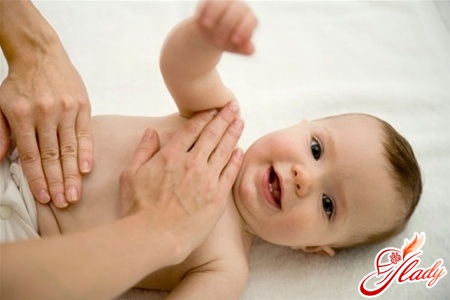
Symptoms of the disease
So, the causative agent of intestinal infection got intothe baby's body. What happens next? In the best case, the body will cope with the infection, unnoticed by the baby and adults. But in the worst case, the disease will begin to develop. The incubation period is not passed by intestinal infections - it lasts from several hours to a week. The onset of the disease in all cases is very acute. The child has pronounced signs of intoxication - diarrhea and vomiting, as well as many other manifestations. It is important to keep in mind that all the symptoms mainly depend not so much on the type of pathogen, but on which part of the digestive system is most affected.
- Acute gastritis - develops in the event that most affected the stomach.
As a rule, gastritis rarely occurs withoutadditional symptoms. The deterioration of the condition begins suddenly and is expressed quite acutely. The child's body temperature rises to 38 - 39 degrees, nausea and vomiting appear. In addition, the child almost always complains of severe pain in the stomach. Most often, this is observed with food poisoning.
- Acute enteritis - it occurs if the small intestine is affected.
In the event that a child encountersenteritis, the main symptom of the disease will be very abundant and loose frequent stools. In all cases, the course of the disease is accompanied by intense pain - older children may complain of pain, while babies kick their legs and cry desperately. The act of defecation in a child can be up to 20 times a day. At the very beginning of the disease, remnants of undigested food are found in the child's feces, and after a while it becomes watery. As a rule, the feces have a foul odor and greatly irritate the baby's skin. The color of the feces can be very different - it all depends on what pathogen caused the disease. In the event that salmonellosis is the culprit, the child's feces will very much resemble swamp mud - something between brown and green. If the feces are lemon-colored, staphylococcus can be suspected, and if the stool is almost transparent, we are talking about a rotavirus infection.
- Acute colitis - develops in the lesions of the large intestine.
If a child has colic, his stool becomesextremely scanty, but nevertheless very frequent. There are no feces as such - mucus of a brownish hue, with an admixture of pus, and in especially severe cases, pus. The child has very frequent urges to defecate, but not always effective. As a rule, the child experiences severe pain in the abdomen, nausea and vomiting. As a rule, colitis is typical for diseases such as dysentery and salmonellosis. All of the above phenomena have an extremely negative effect on the general condition of the child. Firstly, there is a very high risk of developing severe dehydration. Dehydration is a very serious threat to the child's body - it is the cause of death. Fortunately, today doctors are very successful in dealing with dehydration if the child gets to them on time. Therefore, the only task of parents is to seek medical help in a timely manner. Before the ambulance team arrives, it is necessary to start giving the child water at the first symptoms of the disease. Doctors recommend using regular clean, non-carbonated drinking water for these purposes. And pay special attention - water should be given to the child in very small portions, one teaspoon at a time. But very often - every 5 - 10 minutes. In addition, intoxication is no less dangerous with intestinal infections. Where it comes from - it is not difficult to guess. Pathogenic microflora releases a huge number of various toxins into the child's blood - the results of its vital activity, which accumulate in the body. As a result, various systems and organs are suppressed. The child's kidneys are especially often affected, which bear the brunt of the toxins. But even in this case, doctors very quickly cope with the problem if the child gets to them in a timely manner.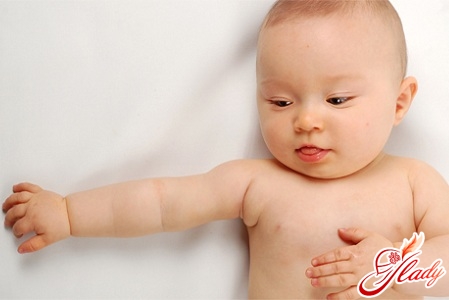
First aid to the baby
Let's talk about how parents canhelp your baby before the doctor arrives. After all, the more correctly you provide first aid to your child, the more effective the rest of the treatment will be and the lower the risk of developing certain complications. All parents without exception can cope with this task, the main thing is to know some rules:
- Hunger
As soon as you notice the first signs,which you may suspect an intestinal infection, immediately stop feeding the child. Do not give him any food, even if the child asks for it himself. The only exception is those children who are breastfed. But only if the nursing mother is completely healthy and has no symptoms of an intestinal infection.
- Drinking regime
A sick child must be treated immediatelyto drink. How to do it correctly has already been described above. Moreover, water should be given even to the smallest children. In the event that the child begins to vomit, reduce the amount of water that you give at one time. But the time between doses should also be reduced.
- Absorbent
In the event that an older baby falls illsix months, it is necessary to give him some absorbent at the first signs of the disease. You can use enteros gel, or you can get by with regular activated carbon. The dosage of the drug is calculated as follows - for every 10 kilograms of weight, one teaspoon or one tablet. As you can see, an intestinal infection, the symptoms of which you now know, is not as scary as it may seem at first glance. The main thing is to seek help from a doctor in a timely manner. And, of course, do not forget about disease prevention in any case, so as not to allow a relapse. Of course, this is an absolutely hackneyed truth, but the fact remains - it is easier to prevent a disease than to treat it. Be healthy! We advise you to read:




